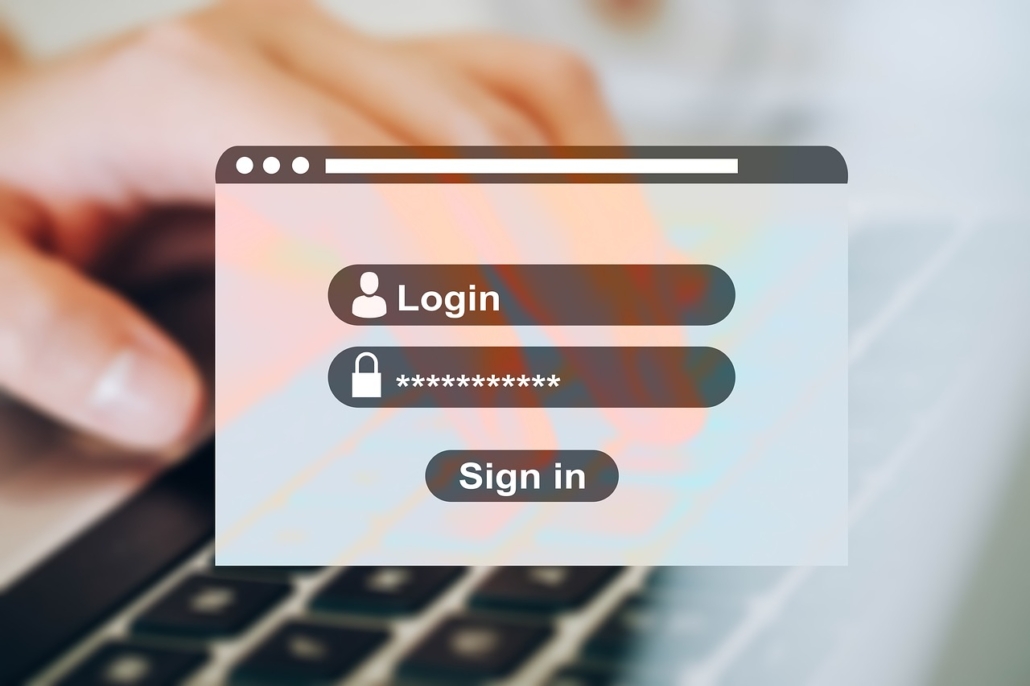What is a Pass Key and Is Now the Time To Adopt Them?
I’m not convinced. Yet. However…
There has been recent news about a massive collection of leaked login credentials widely reported as 16 billion exposed credentials.\

Here’s what’s important to understand about this:
It’s not a single new breach: Cybersecurity researchers, particularly Cybernews, have recently discovered approximately 30 exposed datasets that collectively contain about 16 billion compromised login credentials. This isn’t from one specific company being hacked right now. Instead, it’s a compilation of credentials that have been stolen over time through various data breaches, phishing scams, and infostealer malware, and then compiled into these datasets.
Duplicates are very likely: Since 16 billion is roughly double the amount of people on Earth, it’s highly probable that these datasets contain many duplicate entries and that individuals may have had credentials for multiple accounts leaked. It’s impossible to tell the exact number of unique people or accounts exposed.
Widespread impact: The leaked data reportedly includes login information for a wide range of popular platforms, including Google, Facebook, Apple, GitHub, Telegram, and even some government portals.
Ongoing threat: This compilation highlights the continued and pervasive threat of infostealer malware and the importance of strong cybersecurity practices.
While the exact number might be debated or slightly different across various reports, the core message is that an enormous amount of stolen login data is circulating online, posing a significant risk to individuals and organizations. Making matters worse, one report I saw stated that only 6% of those exposed credentials were unique, which means 94% were the same pass codes used across multiple accounts.
So what the heck is a Passkey?
A passkey is a modern, more secure, and convenient alternative to traditional passwords for signing into websites and applications. It’s designed to create a “passwordless” sign-in experience. Passkeys are a significant step towards a more secure and user-friendly online authentication future, widely supported by major tech companies like Apple, Google, and Microsoft.
Here’s a breakdown of what a passkey is and how it works:
What it is:
- A digital credential: A passkey is a unique cryptographic credential tied to your user account and a specific website or application.
- Replacement for passwords: Its primary purpose is to replace the need to remember and type complex passwords.
- Built on strong cryptography: Passkeys utilize public-key cryptography (specifically the FIDO Alliance’s WebAuthn standard), making them highly resistant to common attacks like phishing, credential stuffing, and server breaches.
- Device-linked: Your private passkey is stored securely on your device (e.g., smartphone, laptop, or a hardware security key).It never leaves your device.
- User-friendly: Instead of typing a password, you authenticate using your device’s built-in security features, such as:
- Biometrics: Fingerprint or facial recognition (e.g., Touch ID, Face ID, Android biometrics) PIN: Your device’s screen unlock PIN or pattern
How it works (simplified):
- Creation/Registration: When you create a passkey for an account, your device generates a unique pair of cryptographic keys:
- Private key: This is your actual “passkey” and is stored securely on your device (e.g., in a secure enclave, TPM, or a password manager).
- Public key: This key is sent to and stored by the website or application’s server. The private key never leaves your device, and the public key alone cannot be used to compromise your account.
- Signing In: When you want to sign in:
- The website/app sends a challenge (a random piece of data) to your device.
- Your device uses its private passkey to “sign” this challenge. This process requires you to unlock your device using your biometric (fingerprint/face) or PIN, proving that you are the legitimate owner of the device.
- The signed challenge (and not your private key) is sent back to the website/app.
- The website/app uses its stored public key to verify the signature. If it matches, it confirms your identity and grants you access.
Key Advantages of Passkeys:
Enhanced Security:
- Phishing Resistant: Since passkeys are tied to the specific website and your device, you cannot be tricked into entering them on a fake site.
- No Shared Secrets: Your actual private key is never transmitted or stored on the server, significantly reducing the risk of breaches.
- Always Strong: Passkeys are cryptographically strong by design, eliminating the need for users to create and remember complex passwords.
Improved Convenience:
- Passwordless Login: No more typing passwords.
- Faster Sign-ins: Often a single tap or biometric scan is enough.
- Seamless Cross-Device Syncing: Many passkeys can be synced across your devices within the same ecosystem (e.g., Apple, Google, Microsoft) or via third-party password managers, allowing you to use them on different devices without re-enrollment.
- Better User Experience: Simplifies account creation and login processes.
Argument for: Adopting passkeys now significantly enhances security by eliminating phishing and credential theft vulnerabilities inherent in passwords. They offer a far more convenient user experience, simplifying logins with biometrics or PINs, leading to increased adoption and reduced support costs. Early adoption positions organizations for the future of online authentication.
Argument against: Passkeys aren’t universally supported across all websites, devices, and platforms, leading to potential user confusion and a fragmented experience. Account recovery can also be complex if a device is lost, and vendor lock-in remains a concern in some implementations. This lack of complete ubiquity might hinder a smooth transition for some users.
Operating System & Ecosystem Giants (who are driving much of the adoption):
- Google: Fully deployed for Google Accounts, allowing users to sign in to their Google accounts with passkeys on Android, ChromeOS, and desktop browsers. They also encourage third-party developers to adopt passkeys for “Sign in with Google.”
- Apple: Deeply integrated into iOS, macOS, and iCloud Keychain. Users can create and use passkeys for Apple ID and many third-party apps/websites on their Apple devices.
- Microsoft: Rolling out passkey support for Microsoft consumer accounts (Outlook, OneDrive, etc.) and also supporting passkeys for enterprise environments through Azure AD and Windows Hello.
- Samsung: Galaxy smartphones support fast and convenient logins through biometric authentication and FIDO protocols, including passkeys.
Major Consumer & Enterprise Companies (deploying passkeys):
- Amazon: One of the largest e-commerce platforms to adopt passkeys.
- PayPal: A global leader in online payments, emphasizing security against phishing.
- TikTok: Supporting passkeys for seamless login for millions of users.
- Adobe: Allowing passkey sign-in for their various creative cloud services.
- eBay: Another major e-commerce player to add passkey support.
- LinkedIn: Offering passkey authentication for professional networking.
- Walmart, Target, Best Buy, Instacart: Major retailers and e-commerce services are implementing passkeys to improve customer experience and security.
- Coinbase, Binance, Stripe: Leading cryptocurrency and payment processing platforms, where strong security is paramount.
- Discord, Roblox, Nintendo, PlayStation (Sony Account): Popular gaming and social platforms.
- Uber, KAYAK: Travel and ride-sharing services.
- Zoho Corporation: Rolled out passkeys to its 100+ million customers across its suite of business applications.
- Aflac: One of the first major insurance companies in the U.S. to adopt passkeys, seeing significant benefits in adoption and customer experience.
Password Managers (who are crucial for cross-platform passkey management):
- 1Password: A leader in supporting and evangelizing passkeys, offering robust passkey management features.
- Dashlane: Another prominent password manager that has been at the forefront of integrated passkey support.
- Bitwarden, Proton Pass, Keeper, NordPass, RoboForm, Samsung Pass: Many other password managers are also integrating or have integrated passkey support.
If your password manager supports two-factor authentication and cross-platform passkey management, you’re likely ready for passkeys. Even without them, if you avoid reusing passwords and have two-factor authentication enabled, your security is already robust. For most users, the best approach to adopting passkeys is to implement them one account at a time to evaluate the user experience.
Robert Siciliano CSP, CSI, CITRMS is a security expert and private investigator with 30+ years experience, #1 Best Selling Amazon author of 5 books, and the architect of the CSI Protection certification; a Cyber Social Identity and Personal Protection security awareness training program. He is a frequent speaker and media commentator, and CEO of Safr.Me and Head Trainer at ProtectNowLLC.com.


























